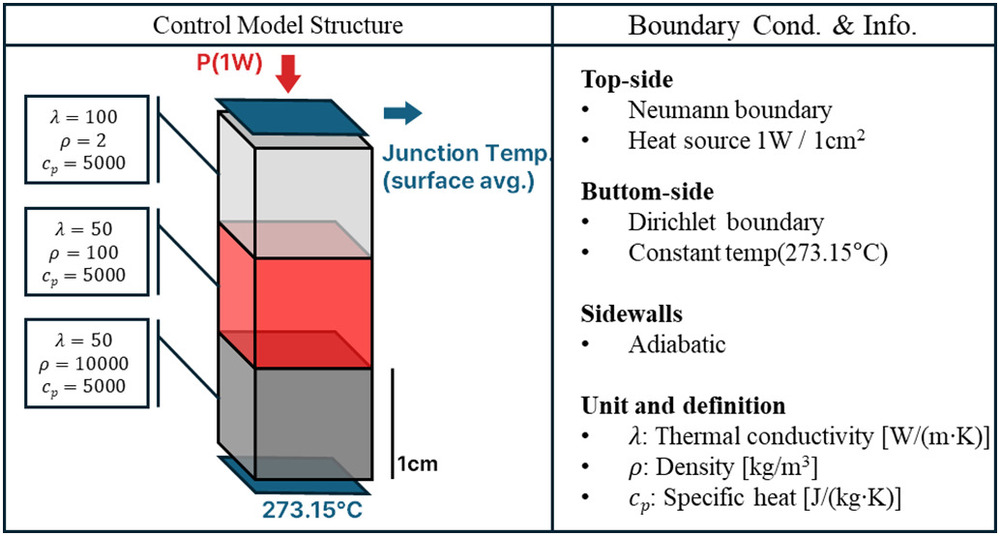2025 Toward Robust Structure Function-Based Thermal Analysis: Quantitative Metrics for Semiconductor Packaging Evaluation
본문
- Journal
- Microelectronics Reliability
- Date
- 2025-10
- Citation Index
- SCIE (IF: 1.9, Rank: 61.6%)
- Vol./ Page
- Vol. 173, pp. 115867
- Year
- 2025
- Link
- https://doi.org/10.1016/j.microrel.2025.115867 87회 연결

Abstract
Thermal management remains a critical challenge in modern semiconductor packaging, where escalating power densities and advanced 2.5D/3D integrated architectures drive the need for accurate and reliable thermal analysis. Structure function (SF)-based thermal analysis provides valuable insights into internal heat transport mechanisms through transient temperature responses. However, its broader adoption is hindered by limitations in data quality, comparison methodologies, and the interpretability of multilayered structures. This study established a robust framework to improve the precision and utility of SF analysis in semiconductor applications. Optimal transient measurement conditions, such as initial time windows (10−6–10−5 s) and sampling density (≥10 points/decade), were identified to enhance the SF accuracy without excessive computational cost. The influence of the thermal and geometric properties was systematically evaluated, highlighting how the layer contrasts and structural voids impact the SF resolution. To overcome the limitations of existing comparison metrics, two new quantitative approaches— the Area Metric and Dynamic Time Warping Metric—are proposed, demonstrating superior sensitivity to both global and localized thermal structure changes. These findings offer practical guidance for thermal design optimization, enable defect detection, and support the development of standardized, simulation-driven SF methodologies.
